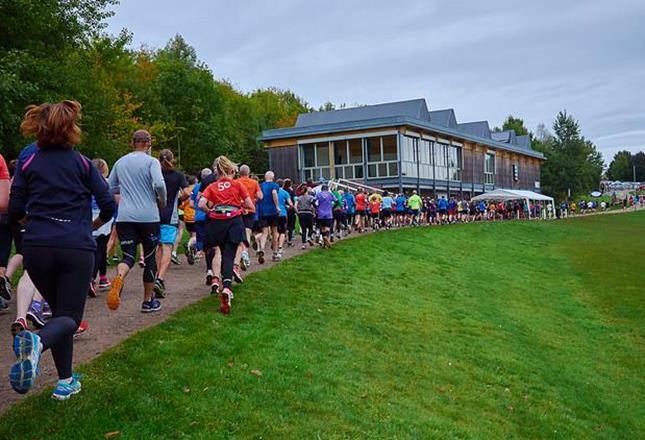
parkrun?organises free, timed 5k events?which take place?every Saturday morning in over 20 countries around the world. It also organises the junior parkrun series, which are 2k events for children aged 4–14 held?weekly?on a Sunday morning. Paul Sinton Hewitt CBE founded the first parkrun in 2004. All events?are held?in areas of open space and are all organised and delivered by local teams of volunteers.
Accessibility and simplicity are the key reasons for parkrun's growth;?participants register online once, turn up at any event, and take part. Contrary to the name, participants walk, jog, volunteer or run. The key is taking part in a manner which suits the individual. The events are open to all, including those with disabilities and long-term conditions.
There are now close to 4.6 million registered participants and since 2004, 1.8 million people have taken part in the UK.?Over 140,000 participants take part every weekend in the UK, which is supporting parkrun's goal of getting the nation?active.
117,000 different people volunteered at parkrun and junior parkrun events in the UK in 2017. The average finish times for 5k parkruns in the UK is getting slower, and?over?50,000 people that took part in 2017 identified themselves at registration as being inactive.
With over 14,000 volunteers helping?at events across the country every weekend, parkrun values volunteering as?participation and as an important route to improve health and wellbeing.?None of their volunteering roles require previous experience and training and support?is provided.
As the success of parkrun has risen, the number of junior parkrun events has grown in areas of social deprivation.?By the end of 2017, 80 new events?were?launched?in more deprived areas of the UK and?over?40% of participants?were accompanied?by adults, showing that junior parkrun?is a family affair and can have significant health benefits for adults?and?children.
A great example of where parkrun has helped a local community is the Graves parkrun, set up by Sloan Medical Centre six years ago. The staff and patients raised the initial event start-up costs with a sponsored run in the park and it?was matched?by the local council. The original volunteers were?from the practice. Dr Ollie Hart was Event Director but stepped down after?a couple of?years. One of the Centre’s receptionists took over and has blossomed in the role. She was?nervous about getting involved, but has grown in confidence and now holds court over 300 people each week. She took a promotion at a neighbouring practice as her career developed.??
Through the association many of the Centre’s staff and patients are regular runners/ walkers or volunteers at Graves parkrun. Dr Hart knows people with multiple sclerosis, diabetes, airway diseases, mental health issues, to name but a few conditions, who have all enjoyed a ‘life changing’ association with parkrun. Dr Hart says that, “as an intervention, helping to start Graves parkrun and having a close association with the event has had the biggest health impact of anything I've done in my career."
Read the second annual parkrun report here.
If you have a case study which highlights how you've positively engaged with your local area, please get in touch with aburgess@sportandrecreation.org.uk.
It is with immense sadness that the Sport and Recreation Alliance learned of Andy Sutch’s passing last week, and we send our deepest condolences to Andy’s family and friends.
Read moreThis afternoon, the Chancellor delivered her Budget speech to Parliament, outlining decisions on tax and spending.
Read moreAhead of the Chancellor’s Budget statement on 26 November, we take a look a look at the key areas to be aware of and the work the Alliance has been doing lobbying on behalf of members.
Read moreJoining the Sport and Recreation Alliance is pretty simple, but worthwhile!
Register now